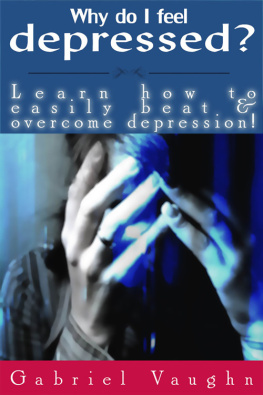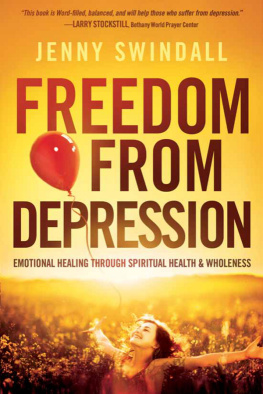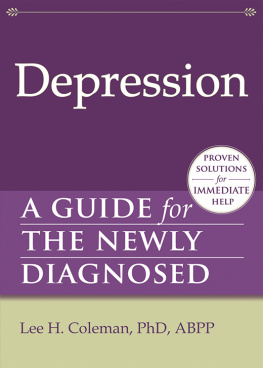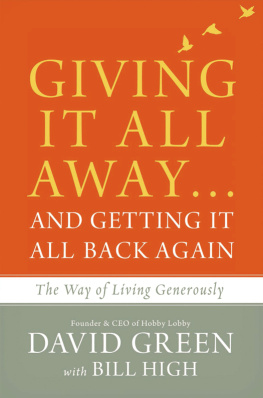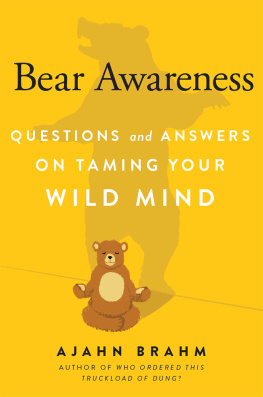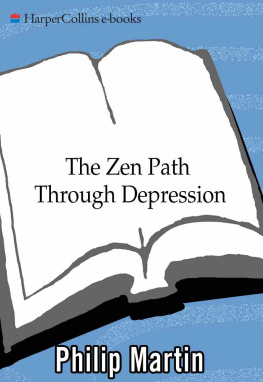GIVING UP
WITHOUT
GIVING UP
For Kath

CONTENTS
Set your troubled hearts at rest
There is an old tale that crops up, with slight variations, at different times and across many cultures. The version I remember is an American cartoon strip from the 1940s. In it, a dishevelled man, who has clearly taken on board a good number of drinks in the course of the evening, is searching earnestly for something under the light of a solitary lamp-post. A policeman approaches and asks what hes looking for. My keys, slurs the searcher. Well, where did you lose them? asks the policeman. Back there, comes the answer, with a jerked thumb over the shoulder indicating the darkness further up the street. Then what are you doing looking here? asks the puzzled policeman. The drunk carries on scrutinizing the illuminated sidewalk. Slowly he gathers himself. Because the light is so much better here, he patiently explains.
This little fable has always spoken eloquently to me about the touching determination with which we all tend to look in the wrong places. We are convinced that we cant find anything in the darkness, and anyway, its a frightening place to be we never know what or who might find us there. But deep down, very deep down, we know where it is the key, the coin, the ring, the treasure that we lost. But we darent go there. What to do? Often we get depressed. Yet there are ways that we can learn to be and to see in the dark. In my experience, meditation is just such a way.
When were depressed were nearly always being asked to loosen our grip on some long-cherished ideas and beliefs about who we are and how the world works. They might be so long-cherished that we are completely unaware they exist. Depression is the inarticulate desire for change. When it seems that we are powerless to change anything, the practice of meditation can begin to open us perhaps for the first time to authentic self-knowledge.
At times of depression we also tend to swing between an unbearable restlessness and a terrible feeling of being utterly stuck. Our thoughts turn in on themselves, repeatedly trying to unpick the same thickening network of mental knots. The internal monologue becomes so intense that we end up incommunicado, filled and surrounded by a wall of white noise.
Meditation offers a way of not being overwhelmed by these unhelpful states of consciousness. Rather than fighting it off at all costs, meditation can help us to be with our depression and to learn from it. The restlessness, complexity and noisiness that distort all of our lives can be met and gently changed by following this wisdom practice that will reawaken our innate experience of stillness, simplicity and silence. It is a way that guides us from the scorched desert that our aching heads and bodies have become, back to the heart that we thought we had lost forever. It opens us to living as fully as possible in both the darkness and the light.
Welcome to this book and to the shared experience of all those who have read it or are going to read it. If youve been drawn by the title, the chances are that you have experienced, or are experiencing, what at this point in human history, within an increasing number of cultures, we have agreed to call depression. Or perhaps you earn your living by being of service to people whose lives seem to be blocked and distorted by the experience (or apparent non-experience) that this word tries to describe. You may be concerned, even to the point of desperation, about a family member, a friend, a work colleague whose life seems paralysed, joyless and full of anguish. Or perhaps you simply feel an urgent call to engage, not just with a condition, but with the human condition that mysterious invitation extended to all of us of which depression is so surely and necessarily a part.
A word about the title. It contains some of the best advice Ive ever heard. I was supervising a psychotherapist at the mental health and wellbeing project I was managing. He also happened to be a gardener and a Zen practitioner a good portfolio. He said that this message give up without giving up was essentially what he offered to each of his clients in one way or another. Many years later, it still resonates for me. It seems to sum up, in an urgent and economical way, the essence of all the wisdom teachings. In the face of overwhelming personal anguish and defeat, it speaks to us even more directly. Stop struggling, let go of the story that has you trapped, accept that you are lost and that you dont know who you are. But keep going, only now in a direction of which you are (blessedly) no longer in total control.
Meditation can be a way of doing exactly that. Its a practical exploration of what its like to release yourself initially just for those 20 minutes or however long it lasts from the desperate task of keeping the show on the road. The familiar strategies and stories, goals and preferences that have kept you going are clearly no longer working. What happens if, instead of ever more frantically trying to start it all up again, you simply give up? Meditation is a practice that can hold you and connect you, as you loosen your grip on everything that has brought you to this moment. This is giving up without giving up at its most immediate and personal.
The practice of meditation that I want to share with you has grown out of the sacred traditions of the world. Its a way of living the wisdom at the heart of them all, not just reading or thinking or talking about it. Too much disembodied thinking and talking may be part of what got us into this mess in the first place. The practice helps us to give up looking in the wrong place. Perhaps its true power lies in allowing us to stop looking altogether, as we start to simply see.
Depressions in the plural, rather than simple depression. I realized I didnt want to overlook the particular experience of countless individuals by just nodding through a word charged with all kinds of implications. Depression has been described as a vague term for a variety of states. Id go further and say that each depression is unique. There are as many depressions as there are people undergoing the experience of life-arresting despair. Even though I will often use the word depression throughout this book, the title is there as a reminder. Rather than focusing on an illness or a disease, I want us to pay attention to living persons: me and you.
So, all are welcome. And Id encourage you to pause for a moment and welcome yourself to this particular adventure, this continuing of your exploration. For all the myriad things I dont know about you, what I do know is that you are reading these words and (probably) holding this book in your hands in the present moment. Everything takes place in this moment the eternal, unrepeatable, astonishing and largely ignored Now. So, encouraging you to welcome yourself is one more way of inviting you to become present, just as you are, exactly where you are. There is nothing grand or special about this. Its simply a matter of opening our attention, noticing, acknowledging and accepting. The muffled jolt of a van in the street, the faint hum of the heater, a nagging pain in the lower back, a pool of light from the Anglepoise lamp falling onto the keyboard. Every second that we are alive is an opportunity to expose ourselves to the radiance of the present moment. But this isnt easy in fact, it can feel utterly impossible when every second seems to last an eternity and is full of an unnameable but agonizing pain. Which is another attempt to describe the indescribable experience of depression.




